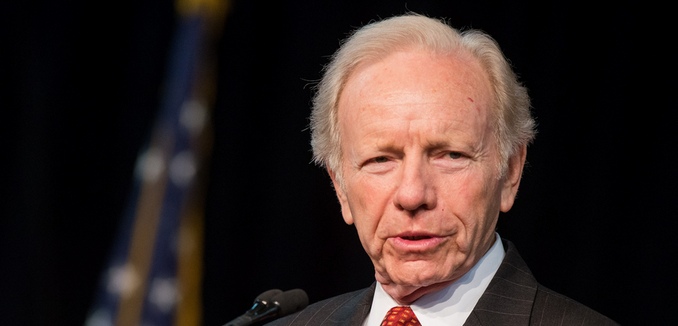A congressional rejection of the Joint Comprehensive Plan of Action (JCPOA) would not lead to war or diplomatic isolation of the United States, as the Obama administration has warned, just as similar warnings proved incorrect about stronger sanctions, former Democratic Senator Joseph Lieberman wrote in an op-ed published Friday in The Washington Post.
I was a member of the Senate when, between 2009 and 2012, Congress developed a series of bills that dramatically increased pressure on Tehran for its illicit nuclear activities, including adopting a measure in late 2011 that effectively banned Iran from selling oil — its economic lifeblood — on international markets. In every case, senior Obama administration officials worked to block congressional efforts, warning that they were unnecessary, counterproductive and even dangerous.
Much like today, the White House repeatedly argued that sanctions would isolate the United States and alienate our allies whose help we needed. In the case of the oil ban, a Cabinet member bluntly told members that adopting the measure risked torpedoing the global economic recovery.
These predictions proved false. In fact, it was only because of the sanctions adopted by Congress, and ultimately signed by President Obama, that sufficient economic pressure was put on the Iranian government that its leaders came to the negotiating table — a truth the Obama administration now accepts and asserts. Our allies and partners did not always welcome new restrictions on doing business in Tehran, but in the end, they decided it was more important to do business in the United States.
Lieberman argued that, if confronted by a bipartisan super-majority of lawmakers opposed to the JCPOA, the administration will be forced to address the “undeniable loopholes and inadequacies” of the nuclear deal. Iran would not walk away from such a renegotiation, as Tehran’s previous willingness to adjust to “new political realities” has demonstrated, especially at a time when its sanctions-damaged economy “needs an agreement much more than we do.”
Lieberman adds that, rather than isolating the United States, a congressional rejection of the JCPOA would have the support of America’s Arab allies and Israel, as well as the tacit support of “even some of our European allies.”
In announcing his opposition to the JCPOA, Sen. Jeff Flake (R – Ariz.) wrote that the nuclear agreement’s failure to incorporate mechanisms that would allow Congress to make adjustments.
Lieberman’s argument that congressional rejection of the JCPOA could lead to its renegotiation on better terms echoes that of legal scholar Orde Kittrie, who wrote last week that, historically, over 200 treaties have been renegotiated because of congressional objections, and that the JCPOA, which isn’t a treaty, should certainly be able to be similarly amended.
[Photo: roanokecollege / Flickr ]




